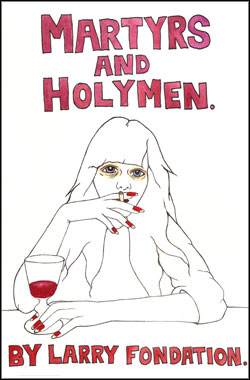Time is the Longest Distance

- $15.95 PaperbackISBN: 9781947879010
US only, email
for international rates
Lawrence is an awkward, bookish man. He’d been a grad student with a notion to write his thesis about a connection between Nathaniel Hawthorne and Nathanael West. That was before a nervous breakdown interrupted his studies and left him homeless. He finds himself on Skid Row during Operation Clean Sweep, a citywide campaign to get rid of LA’s homeless.
Lawrence is articulate, and sometimes lucid, but more often not. He is well-read, and sees current events through the historical lens of Puritan New England. He views the arrests by the LAPD as a recurrence of the Salem Witch trials. His main concerns are keeping track of his lucky quarter and a piece of blue string. But the police sweeps and the transience of homeless life silently conspire to separate Lawrence from what is even more important to him—his friends, Albert and Joey, and especially, Bekah.
Time Is the Longest Distance is a novel about disruption, loss and longing when you have almost nothing left to lose—but not quite nothing.
What They’re Saying
“…poignant, bare, dense. Essential.”—Bertrand Tavernier, Director of The Clockmaker
“…Fondation strips his characters of an interiority meant to make them more universally familiar, engaging the reader with the dispossessed on their own impossible terms.”—Santa Fe Reporter
“…narratives about the fringe of the fringe of contemporary American culture sublimate and ferment like a hard, sage Scotch…”—American Book Review
“[Fondation’s] powerful, gut-wrenching stories—real, stark visions of survival from LA’s underbelly—depict Skid Row heroes with the same mix of hope, passion, lust and human foibles shared by all humans, rich and poor…[his] compact sentences pack a punch, and his portrayals mix poetry with the staccato rhythm of gunfire.”—Agenda Magazine
“…a mosaic composed of a new kind of fabric: one that redefines the parameters of continuity and expands the nature of the narrative’s focus beyond the scope of character.”—The Texas Review





